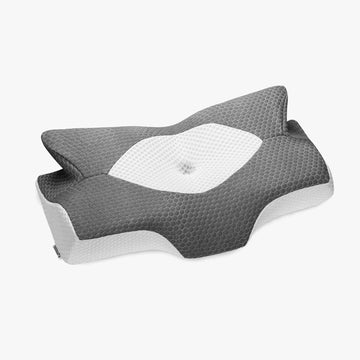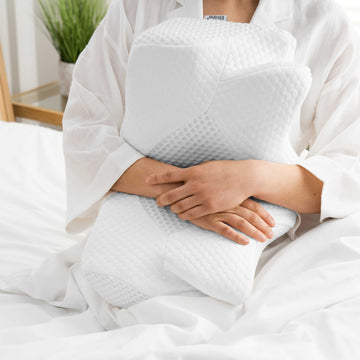Sleep and Weight Management: How Lack of Sleep Affects Your Diet
by Team Elviros on Mar 01, 2024
Not only does getting enough sleep improve general health, but it also helps us maintain a healthy weight and eat a balanced diet. You might be surprised to learn that our eating habits and food preferences are significantly influenced by the quantity and quality of sleep we have. We'll examine the connection between sleep and weight control in this article, as well as how getting too little sleep could impact your eating habits. Therefore, you must prioritize getting enough sleep if you want to optimize your diet and meet your weight goals.

The Significance of Sleep in Weight Management
-
Regulation of Hormones and Appetite
There are two main hormones that control appetite: ghrelin and leptin. Leptin, commonly referred to as the "satiety hormone," signals our brain when we are full, while ghrelin, sometimes referred to as the "hunger hormone," increases our desire to eat. Sleep deprivation puts these hormones out of balance, raising ghrelin and lowering leptin. Consequently, we might experience an increase in hunger and desire, especially for meals that are heavy in calories, sugar, or fat.
-
Emotional eating combined with lack of sleep
Apart from causing hormone imbalance, sleep deprivation can also affect our psychological well-being, which subsequently shapes our food preferences. Lack of sleep typically increases anxiety, irritability, and worry, which increases the tendency to overeat emotionally. We could reach for comfort meals or unhealthy snacks as a coping mechanism for tiredness and mood swings. This never-ending loop might harm our efforts to control our weight and make us depressed.
-
The Connection Between Food Choices and Sleep Quality
The quality of sleep is just as important as the quantity of sleep. Making food choices may be affected by poor sleep, which includes waking up frequently or tossing and turning all night. It has been shown that individuals with sleep disorders tend to favor processed foods high in calories over healthier options. The prefrontal brain region, which is in charge of rational decision-making and self-control, is compromised in this situation.
The Benefits of a Restful Night's Sleep for Your Weight Loss Journey
-
Purchase a High-Quality Pillow
Purchasing a high-quality cervical neck pillow is an easy yet efficient way to establish a cozy sleeping space. You may have neck support and restful sleep at the same time with a cervical memory foam pillow, like the Elviros Side Sleepers Deep Sleep Cervical Memory Foam Pillow. For further details regarding this product, kindly visit the Elviros website.
-
Establish a bedtime routine
Your body can become more relaxed and ready for sleep by establishing a relaxing nighttime habit. Incorporate activities like taking a warm bath, reading a book, or listening to calming music. Try to go to bed and wake up at the same times every day—especially on the weekends—as consistency is crucial.
-
Establish a Sleep-Friendly Environment
Create a peaceful sleeping space in your bedroom. Maintain a cold, calm, and dark room to help with your sleep.
If need, think about using earplugs, blackout curtains, or a white noise generator.
Make sure your pillows and mattress give your body the comfort and support it needs.
-
Make regular exercise a priority
Engaging in regular physical activity can improve your sleep quality. But stay away from intense exercise right before bed since it could keep you too awake to sleep. If you strive for a moderate level of activity in the morning, you will experience improved sleep at night.
-
Restrict how much time you spend using electronics
Blue light produced by electronic devices may disrupt your sleep-wake cycle. Avoid using electronics an hour or two before going to bed, including computers, tablets, and smartphones. If needed, reduce the amount of blue light emissions using settings or apps.













